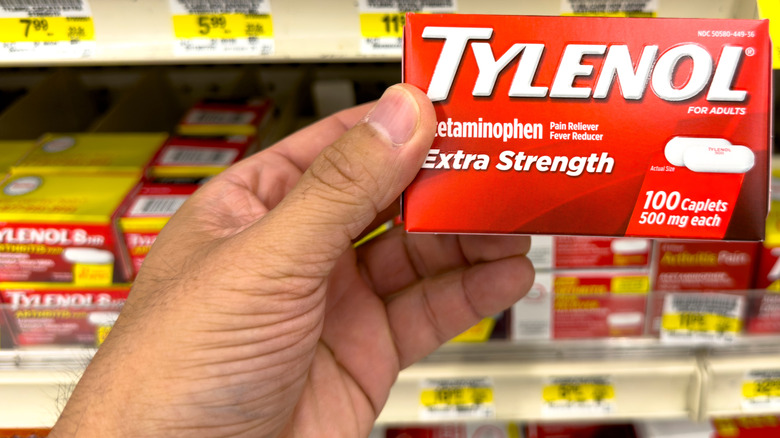What The Maker Of Tylenol Has Said About The Inconclusive Link Between The Drug And Autism
Autism spectrum disorder cases have risen over the past two decades. Today, the condition affects around 3.2% of children in the United States, according to the Centers for Disease Control and Prevention.
On September 22, 2025, the Department of Health and Human Services (HHS) announced that the rise in childhood autism is associated with the use of acetaminophen (aka paracetamol) by pregnant women. As a result, acetaminophen makers will be required to add a consumer safety label to their products. Food and Drug Administration (FDA) Commissioner Dr. Marty Makary noted that the agency "is taking action to make parents and doctors aware of a considerable body of evidence about potential risks associated with acetaminophen."
Yet one acetaminophen maker — Kenvue, the company behind the brand Tylenol — says the facts don't support an acetaminophen-autism link. In a statement, Kenvue said that "sound science clearly shows that taking acetaminophen does not cause autism" (per PBS).
However, a 2025 review in Environmental Health indicates a possible connection. The review examined 47 studies and determined that enough evidence existed to support a relationship between exposure to acetaminophen in the womb and later autism diagnosis. Additionally, a 2020 study in JAMA Psychiatry looked at 996 relevant patient records to find out if children whose moms had used acetaminophen were at higher risk of being diagnosed with autism or a related brain-related condition like attention deficit hyperactivity disorder (ADHD). The study also found enough of a connection to warrant further research.
What the evidence says
Nonetheless, experts aren't entirely convinced by the conclusions of the review — or the decision to pinpoint acetaminophen as a cause of autism.
A 2024 study in JAMA looked at the long-term neurological effects of in utero acetaminophen exposure in more than two million children. The researchers determined there wasn't a strong acetaminophen-autism correlation. Speaking to Nature, epidemiologist and study co-author Viktor Ahlqvist cautioned that "[we] risk placing blame on mothers and causing more stress, self-blame, and stigma, despite having no evidence to support such claims" by identifying acetaminophen use in women as the reason for the rise in autism cases.
A 2025 study in Paediatric and Perinatal Epidemiology came to the same conclusion. After looking through the records of more than 200,000 children, the study found that there wasn't any proof that acetaminophen exposure during in utero development caused autism.
As the chief science officer for the Autism Science Foundation, Alycia Halladay explained to PBS that she's not convinced. Said Halladay, "The scientific studies that have been conducted so far do not support the idea that Tylenol causes autism." In the meantime, Kenvue stock plummeted, falling 7% the day that the White House made its announcement.

